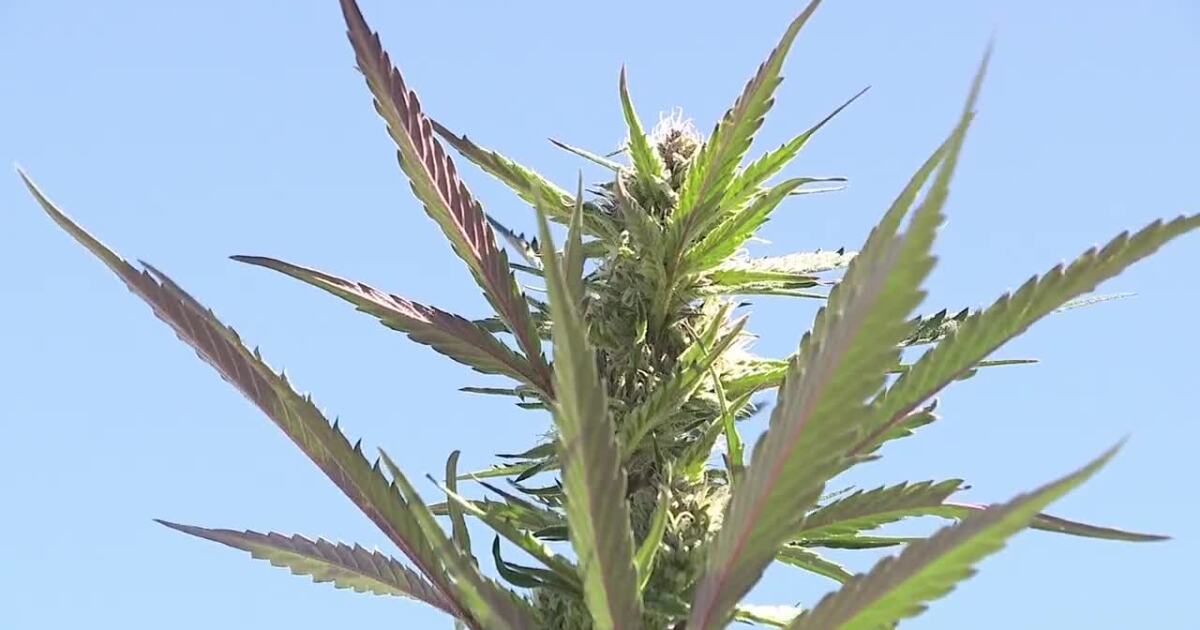[[{“value”:”
SALT LAKE CITY — Libby Chatwin uses medical cannabis to help with her rheumatoid arthritis, applying a topical cream to treat pain.
“I’ve been dealing with this for probably like, three to five years with pain and targets in my neck, and so I finally got my med card, and it’s drastically helped with pain,” she said in an interview with FOX 13 News.
Chatwin is one of the more than 100,000 medical cannabis cardholders in Utah, a new record for the program.
“I had no issues getting my card. The thing that took me the longest getting it was me actually going and doing it,” she said.
Utah voters legalized medical cannabis in 2018. The Utah State Legislature then implemented a tightly-controlled program. But patients and political leaders have become more comfortable with medical cannabis since then.
Medical cannabis patient advocates fear law change could reduce access:
“It’s a major milestone in the program that represents a lot of work that patients have done to find medications that work for them,” said Rich Oborn, the head of the cannabis program for Utah’s Department of Health & Human Services. “Medical cannabis is something that’s evaluated carefully with help from a physician.”
Oborn said the program is also making progress getting physicians comfortable with recommending cannabis. So far, roughly 1,000 physicians are now participating in the program.
“Patients are getting settled into their access. They’re finding pharmacies they can find product, consistent product at,” said Desiree Hennessy, the executive director of the Utah Patients Coalition, which sponsored the citizen ballot initiative to legalize medical cannabis and continues to advocate for access.
“We’re hoping that will continue to push us into the mainstream medical market and we will see even more patients using medical cannabis for conditions they would normally use to treat things with opiates,” Hennessy added.
New poll says majority of Utah would vote to legalize recreational marijuana:
New research shared with FOX 13 News suggests that opioid use has declined, coinciding with the ramp-up of Utah’s medical cannabis program. The research, conducted by Management Science Associates for Dragonfly, a medical cannabis company, said 84% of the medical cannabis patients they surveyed had reported cutting opioid use by 54% thanks to medical cannabis. MSA also documented “a noticeable decrease in deaths related to prescription opioids in the state” since 2018, when voters legalized medical cannabis (but the chart shows declines in opioid overdose deaths prior to then).
“We’re aware of the survey, we’re reviewing it,” Oborn said of the research.
The University of Utah’s Center for Medical Cannabis Research is also conducting research on the efficacy of the program, including exploring patients’ illict use of opioids and prescribed pain medications.
“We basically saw less risk level opioid use across time for medical cannabis patients. The biggest movement was for patients reporting less moderate risk,” Dr. Jerry Cochran, the center’s director, said in an email to FOX 13 News.
However, Dr. Cochran noted there was less movement in their surveys when it came to prescription drugs and even a slight increase in muscle relaxants among those they surveyed.
The biggest competitor to Utah’s medical cannabis program right now? The black market:
Chatwin, who said she is a recovering opioid addict, is among those who said she has used medical cannabis so she doesn’t have to turn to pain medications.
“I was able to drastically cut down on the opiates,” she said.
Medical cannabis advocates say that while they have seen progress, there are still issues with the state’s program (there were political battles this year on Utah’s Capitol Hill over some proposed expansions of the program). Not enough physicians feel comfortable recommending it to their patients over opioids, cost and product selection remain top complaints for many patients.
These are things Oborn said they continue to work on.
“One challenge is price, because it’s difficult to compete with the black market and also other states where it’s recreational,” he told FOX 13 News.
This year, legislation on medical cannabis that passed will reduce hurdles for physicians to be able to recommend cannabis. The Utah Department of Health & Human Services has also cut some fees related to the program in an effort to make things more affordable.
Hennessy said access remains a barrier for many Utahns.
“It’s still expensive, insurance is still not covering it,” she said.
Chatwin said she is happy with Utah’s medical cannabis program and how it works for her.
“I’m a satisfied customer because out in the black market, you have like one or two selections,” she said. “And then you don’t know where it’s coming from. So I love that I know that it’s safe and there’s not anything mixed in with it.”
“}]] Libby Chatwin is one of the more than 100,000 medical cannabis card holders in Utah, a new record for the program. Read More


